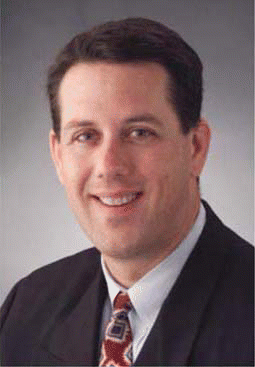The risk of viral spreading through the laser plume is still an ongoing controversy. Although live virus particles have been found in the laser plume, and operating room staff can wear protective masks, “I’m not aware of any cases where it’s transmitted to the operating room personnel,” he said. “The precautions with suctioning and the mask would make that extremely rare.”
Explore This Issue
July 2006The lesions should be removed in one or two surgical stages, depending on anterior commissure involvement Dr. Rosen said. “If you are too aggressive and remove disease on both sides, then you may end up with a [web].… So then remove it on one side, wait for a month, and then do the other side, to allow for healing.”
Ongoing Care
After removing the lesions, the otolaryngologist needs to monitor the patient for recurrence. When talking to patients, Dr. Simpson compares the surgery and postoperative monitoring to mowing a lawn. The lawn will grow back, and so does papilloma. “Patients can understand that,” he said. “Most practitioners realize that the nature of the disease is that it’s recurrent.”
Dr. Rosen noted that postoperative monitoring for hoarseness symptoms will help the physician determine how quickly an individual patient’s papilloma returns. “Some have surgery every three to five years,” He said. “Others have it every month. There’s a wide variety in growth rates.”
Cidofovir to Prevent Regrowth
Both agree that repeat surgery is necessary when symptoms return. Some otolaryngologists use the antiviral agent cidofovir (Vistide) on an off-label basis, but its use in this setting is fraught with controversy, Dr. Simpson said. Cidofovir was originally developed to treat patients with human immunodeficiency virus (HIV) with cytomegalovirus (CMV) retinitis. “Some physicians are concerned that we’ll see some malignancies related to the cidofovir,” he said. “We’ve only been using it in adult papilloma for five years.”
“The most important thing is for the surgeries to be done in a conservative, precise fashion.” – —Clark A. Rosen, MD
He noted that in some animal studies, treated rats were more likely to develop breast cancer. “We started using cidofovir in pediatric patients and found it played a major role in slowing growth,” Dr. Simpson said. “But we don’t know the long-term effects. A lot of pediatric otolaryngologists won’t use it at all anymore. The enthusiasm has cooled off, but it’s still a good choice in aggressive disease.”
Dr. Rosen added that he also uses cidofovir but agreed it should be used with great caution and reserved for patients with moderate to severe disease who have been counseled on the treatment’s potential risks.

Leave a Reply